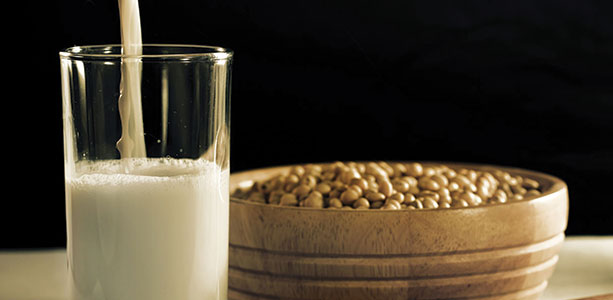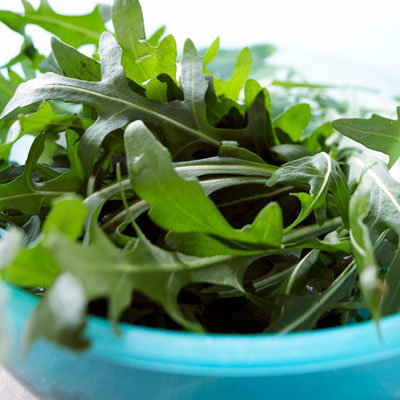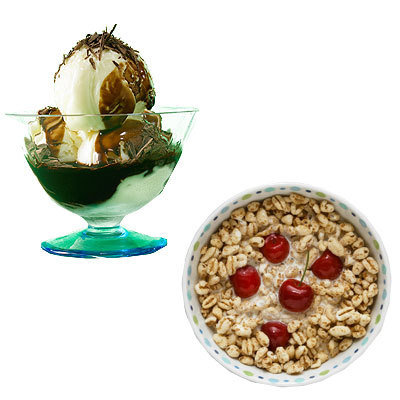Using Fiber and Protein to Control Your Appetite

Well, it’s the New Year! Perhaps you’ve made a resolution to lose weight. If so, good for you. Of course you know and I know that it’s not that simple. For those of us who have struggled with the battle of the bulge, we know for a fact that losing weight isn’t easy. Furthermore, one of the primary reasons that this is so has to do with appetite control. Simply put, if you’re not hungry it’s easy to lose weight. If you’re not hungry you can keep your calorie consumption down, feel satisfied and easily fit into your jeans. Unfortunately, that elusive sense of satiety is hard to come by for so many overweight and obese individuals.
What would really help is something that safely and effectively helped to reduce appetite and promote satiety. Of course there are many products out there claiming to do just that. The fact is, however, that the overwhelming majority of them just don’t seem to work. The sad truth is there is no magic weight loss pill—despite marketing claims to the contrary. The good news is there are two commonly available substances that can help with appetite control and satiety. These substances are not the miracle answer to weight loss, but they may very well be able to help you with the process. These two common substances are fiber and protein—or more specifically, a certain type of fiber and protein.
Oligofructose-enriched inulin: a preferred fiber
In general, fiber is known for its ability to help suppress appetite.
The way it works is that fiber absorbs water or other liquids
and expands in the stomach, helping to create a full feeling.
While this is generally true of any fiber, there are some types
that perform better than others for this purpose. One such type,
derived from Chicory root, is oligofructose and oligofructose-enriched
inulin (OEI). Both oligofructose and inulin are soluble
fibers, and oligofructose is also identified as a functional fiber,
which means it has additional beneficial physiological effects in
humans.1
In a double-blind, randomized, placebo-controlled, crossover trial2 thirty-six overweight and obese men and women consumed either 12g/day OEI or placebo for three weeks, as two 6g supplements dissolved in a beverage, with breakfast and lunch. The result was the subjects using the OEI consumed significantly less calories. In another randomized double-blind, cross-over study,3 31 healthy men and women received 10g oligofructose, 16g oligofructose or 16g placebo daily for 13 days. The result was that the subjects consumed significantly less calories with 16g/ day oligofructose. In a third randomized, double blind, parallel, placebo-controlled trial,4 a total of 10 healthy adults received either 16g/ day OEI or 16g/ day placebo for two weeks. Results showed that the OEI treatment lowered hunger rates and ate less calories than the placebo group. Additional studies have shown similar results.5,6,7,8 Furthermore, other research has shown that supplementation with OEI provided additional benefits: it helped improve calcium absorption9,10,11,12 and it acted as a prebiotic that promoted the growth of healthy bifidobacteria probiotic colonies in the gut.13,14,15,16
WHEY PROTEIN
Multiple studies17 have shown that increasing the protein
content of meals without increasing total calories has resulted
in subjects eating less overall calories. Furthermore, other
studies18 have shown that a higher protein intake increases
thermogenesis (i.e. fat burning) and satiety compared to diets
of lower protein content. Some evidence suggests that diets
higher in protein result in an increased weight loss and fat loss
as compared to diets lower in protein.
While almost any protein source could offer satiety enhancing benefits, whey protein (WP) has been shown to be particularly effective for this purpose, as well as providing other benefits that may help support weight loss. One of the mechanisms by which it does this is that it delays gastric emptying more effectively than other forms of protein tested. In other words, it keeps food in the stomach longer so you feel fuller for a longer period of time.19 Other research20 has shown that WP was more effective than other forms of protein tested at reducing the amount of fat in the blood stream after meals in obese individuals. This not only bodes well in helping to decrease cardiovascular disease risk, but lowering blood fats is also conducive to supporting weight loss goals.
With regard to reducing appetite and improving satiety, there are so many studies that it is not practical to review them in this article. Instead, I’ll just provide the accompanying summary table below.
CONCLUSION
Losing weight can be difficult, especially when your appetite gets
in the way. However, if you use some fiber and protein before
a meal, you may be able to “spoil” your appetite on purpose,
allowing you to eat less and feel satisfied—which is likely to
bode well for your weight loss efforts.
| Amount used in study | Results |
|---|---|
| 30g WP + 30g carbs21 | • Extended the duration of satiety |
| 20g WP 3X daily + Exercise22 | • WP + exercise reduced total and regional body fat • WP + exercise promoted healthy insulin sensitivity |
| 54g WP/day23 | • WP effectively promoted satiety and fullness |
| 60g WP24 | • Food intake was lower following ingestion WP |
| 50% WP + 40% carb25 + 10% fat meal (average protein intake was 57g/d) | • Thermogenesis was greater after WP • Fat oxidation was greater after WP • Glycemic response to glucose attenuated 32% by proteins |
| 50g WPI26 | • WP meal reduced appetite and decreased food intake at a subsequent meal |
| 10–40g WP27 | • WP (20–40g) reduced food intake • WP (10–40g) reduced post-meal blood glucose and insulin |
| Whey-protein breakfast with protein/ carbohydrate/fat balance as: • 10/55/35% (normal) • 25/55/20% (high)28 | • 10% WP decreased hunger • 25% WP triggered stronger responses in hormone concentrations |
| 50g WP taken before a meal29 | • Reduced calorie intake |
| 55g WP taken before a meal30 | • Appetite and calorie intake reduced |
| 57g WP in yogurt31 | • Decreased hunger more than regular yogurt |
-
The Best Weight Loss Program Is Out There For You
Dropping weight is hard enough as it is as most people are not used to
-
Lose Weight & Achieve A Healthy Metabolism By Balancing And Adjusting Your Meals
How many meals do you eat in one day?Close study of
-
Fast weight loss: Whats wrong with it?
Every dieter wants to lose weight fast, but every reliable piece of di
-
Review Fat Burning Furnace Book
Rob Poulos, who has fought against his overweight since his childhood.
-
Do You Want To Lose Weight Fast... But Fat Loss Is A Real Struggle?
If you would like to lose substance, especially if you would like to l
-
7 Day Detox Diet Pills
A woman who has used this Diet Solution suggested, The Diet Solution P
- DON'T MISS
- Natural Weight Loss - Lose Weight Naturally
- Time To Take Control Over Those Food Cravings
- Herbal Pills To Remove Excess Belly Fat In An Effective Manner
- Healthy Eating - Eating for Weight Loss
- Lose Weight with Healthy Diet Tips from Prevention Magazine
- Accept, If You Can, That Weight Loss Requires Total Mindfulness
- 5 Diet Fails Youre Probably Making
- 1 Pound Of Fat = 3,500 Calories
- Specifically how to positively drop some unwanted weight quickly
- The Fat Burning Furnace System




